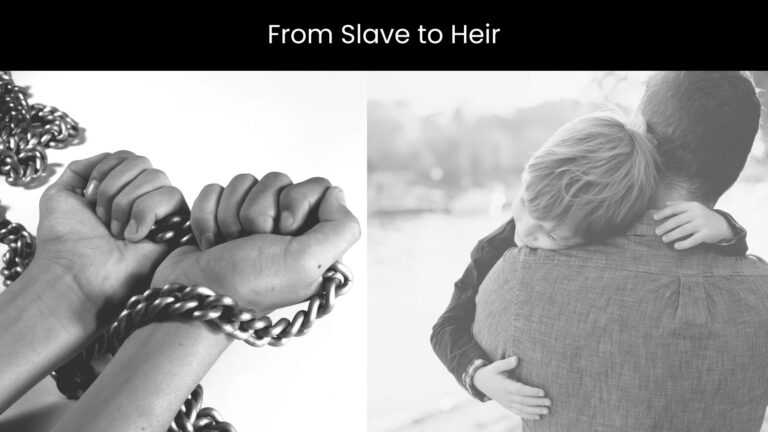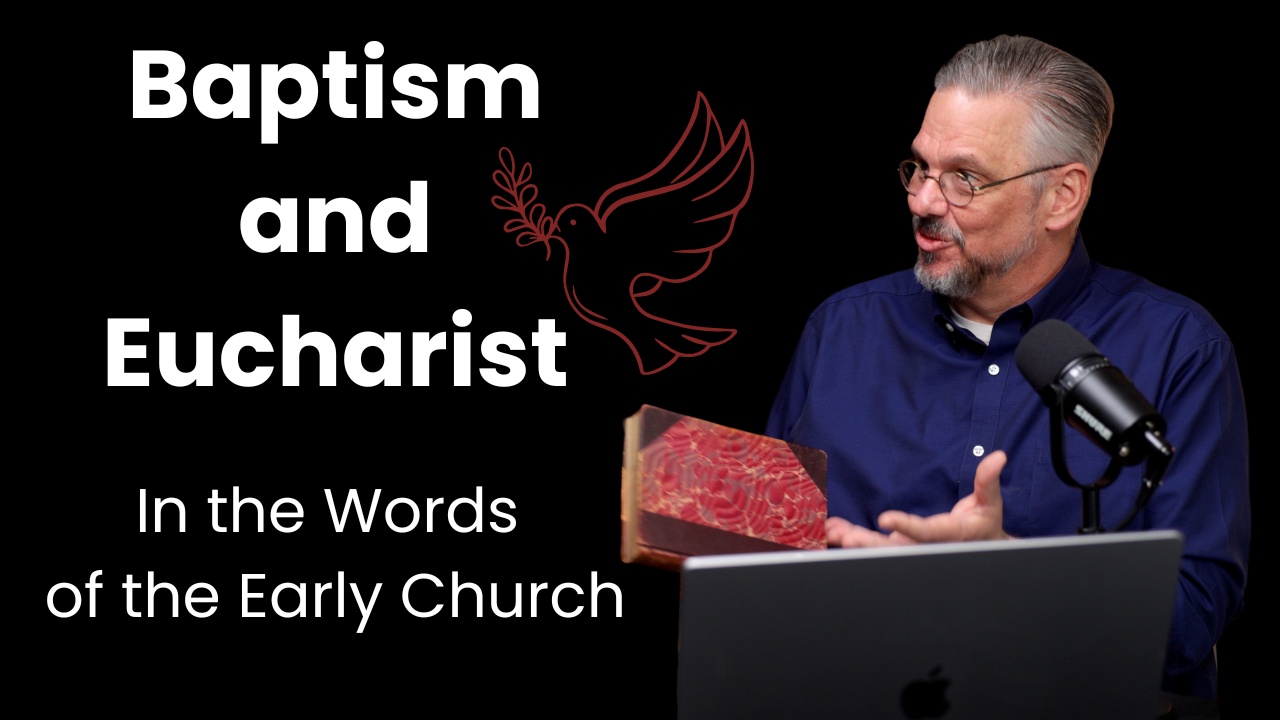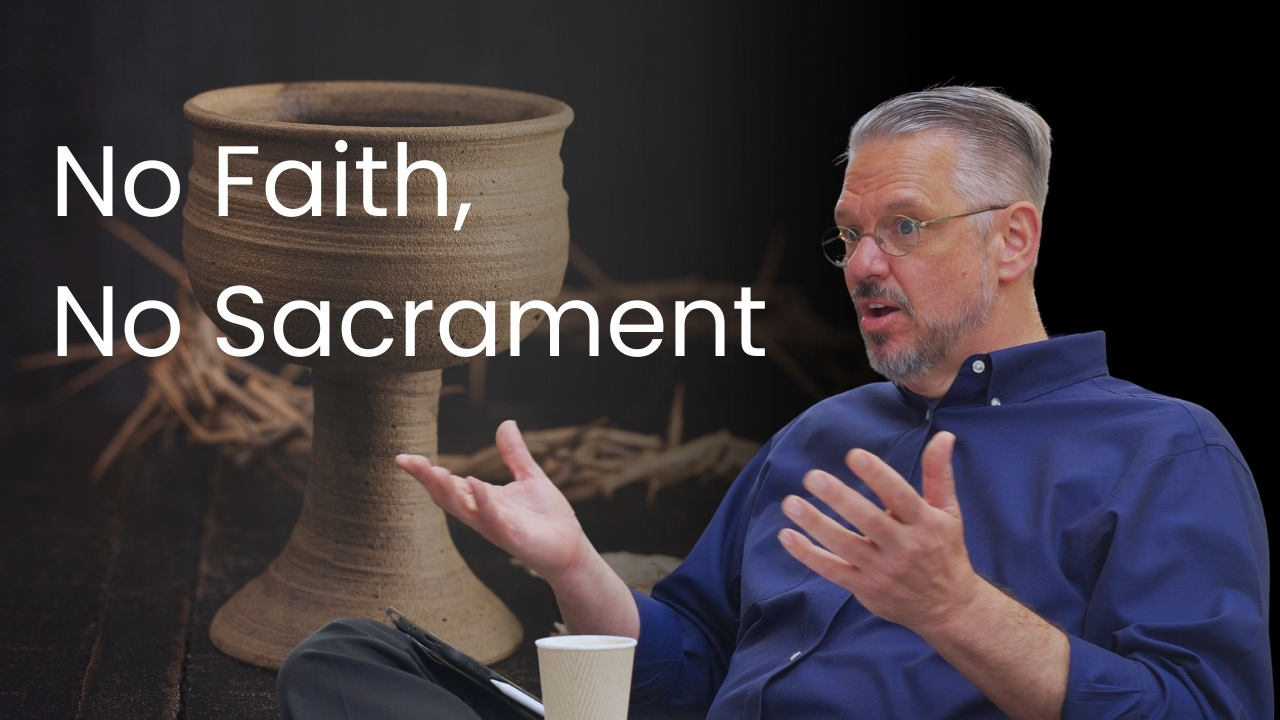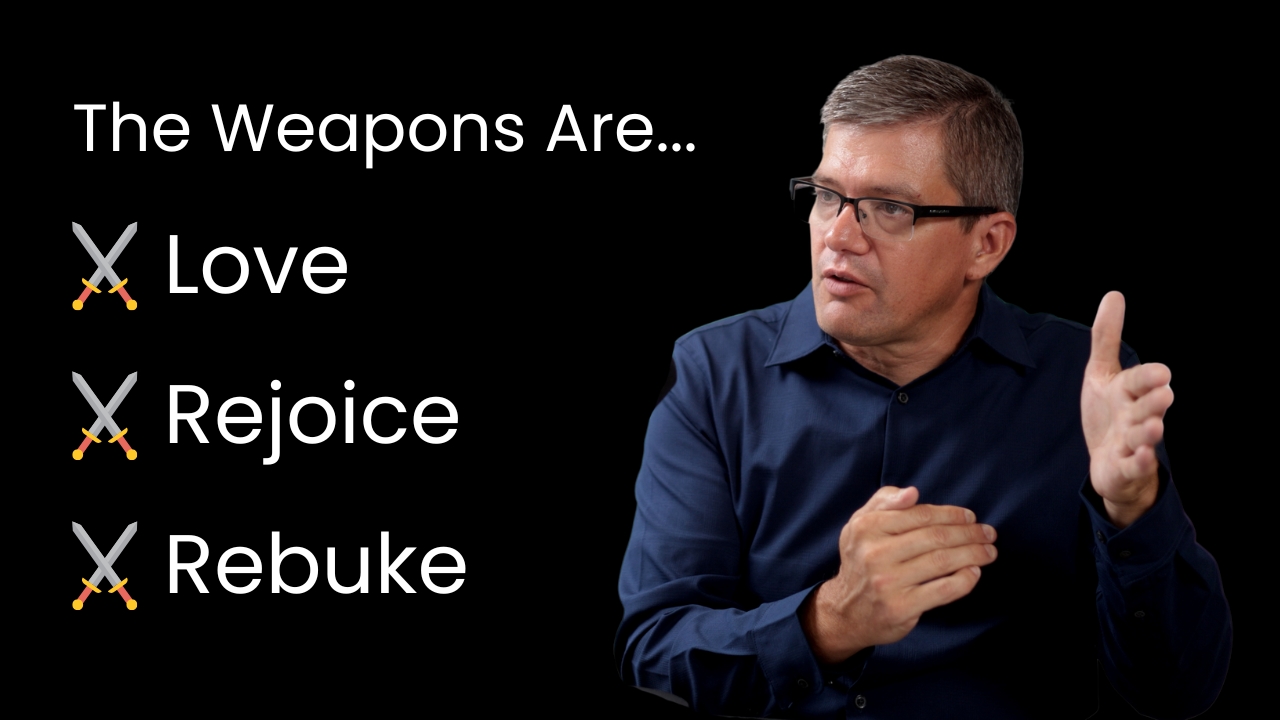From Condemned Slave to Belonging Child
There is no condemnation for those who are “in Christ” and walking “after the Spirit.” The believer belongs to God as “Abba Father.” We are no longer slaves to flesh life because we have the Spirit, and we have Christ’s divine life in us. Since we are no longer controlled by the flesh, we are free from condemnation. With Christ and the Holy Spirit dwelling in us, we can live confidently and courageously in the freedom of belonging to Abba Father.
A huge nagging question in the back of human minds, and often in the front of our minds, is whether we belong to anyone? We need to consider what it means to belong to Abba Father. The opposite of belonging to Abba Father is to belong to the devil. To state the meaning of “belong to the devil” as strongly as Scripture expresses it, one would need to say that one who belongs to the devil is a condemned slave of the devil.
If you are like I am, the thought of belonging to the devil and being a condemned slave of the devil is a terrifying thought. I am not sure what all goes into the terrified feeling I have when pondering the thought of belonging to and being a slave of the devil. Part of the terror is, I believe, the realization that if I am a slave to the devil, I am a helpless pawn in his clutches. And not only am I helpless, but I am also condemned. I find no comfort, no rest of heart, no freedom from fear when I think about the possibility of belonging to and being a slave of the devil.
“Jesus Christ risen from the dead” possesses the power and authority to deliver every person from the power of the devil, that is, from their belonging relationship with the devil. “Jesus Christ risen from the dead” also possesses the power and authority to deliver every believer from “walking after the flesh.”
Suffering Heirs
Those indwelt by Christ and the Holy Spirit are heirs of God according to Romans 8:17-30. To be an heir of God and joint heir with Christ means that believers will receive an inheritance that includes the blessings or benefits Christ will experience in the final defeat of Satan and evil. It includes everything it means for Jesus Christ to be the sovereign Lord of heaven and earth, and everything it means to rule with Christ in the new heaven and new earth. Believers will participate in the final renewal of all things and “be also glorified together” with Christ.
This inheritance and glorification come with an intriguing condition— “if so be that we suffer with” Christ. The Spirit makes believers children of the heavenly Father, frees them from the bondage of fear, and makes them joint heirs with Christ—if they suffer with Christ. (Romans 8:14-17) This goes against everything in us. We don’t normally connect suffering with lack of fear. Most of us avoid pain and suffering at every turn. We are afraid our heavenly Father cannot or will not take care of us amid pain and suffering. In fact, we doubt His love when we are suffering. But suffering is not portrayed as something we might avoid; rather, it is inevitable if we are to be a joint heir with Christ and to participate with Christ in the redemption of the groaning creation. (Romans 8:22)
If we misunderstand our suffering, we can even become angry toward our heavenly Father during the process of glorification. Romans 8:14-17 offers comfort as the heavenly Father’s children. We can be glorified with Christ and enjoy all the benefits of being children just as His Son, Christ enjoys. The difficulty is that our union with the Father’s Son, and our status as the Father’s sons and daughters, gives us very little comfort if we fear the suffering that our heavenly Father allows during the process of us being glorified with His Son. We may experience fear and anxiety about life if we do not understand the glorification process.
Romans 8:18-27 says there is no despair because we know that our sufferings, if endured, will produce something of glory. The present suffering can be understood and endured only in light of the future and the invisible. The New Testament assumes that suffering in this present life is normal, even for the Christian. The New Testament nowhere promises that believers will be delivered from suffering. This is the reality of our present earthly existence, and this reality must be understood in the light of God’s promise of final deliverance.
The suffering of this life may come from our confession of Christ or because the devil opposes our efforts to do the work of the Lord. Our sufferings also include illness, loss of loved ones, temptation, physical death, and the imperfections of relationships. According to this Scripture, all our present suffering is insignificant when compared to the glory that will be revealed to us and in us. (18)
To whom do these promises apply? These promises are given to those who are united with Christ, indwelt by the Spirit, and walking after the Spirit. These people have died and risen with Christ. They are delivered from guilt for past sin and from the condition of being “in Adam, in sin, in death, in the flesh, in the old man, and under the Law.” They “mind” the things of the Spirit and are being delivered from habits of sin. In Paul’s language they “fulfill the righteousness of the law.” This doesn’t mean that believers never struggle with living in the old “in the flesh” condition. It doesn’t mean they live in sinless perfection in this life. But it does mean they are being delivered from sin, not merely from the guilt of sin.
Stages of Redemption
According to verse 17, the believer will participate in Christ’s glory. Christ has already been glorified and has entered glory. But Christ entered glory only after He suffered in this world. According to verse 19, not only believers, but also all of creation, waits in “eager expectation” for the manifestation (revelation) of the sons of God. God’s children, although already redeemed and adopted into the Father’s family, await a still fuller glorification with the Son, a fuller deliverance from the suffering and trouble of the present world.
Why must both creation and believers await this day of glorification? The answer is given in verses 20 and 21. Adam’s fall into sin has brought all of creation into bondage and ruin. Creation is not now what God intended it to be. Creation is subject to “vanity”, to frustration, because it cannot, in the present circumstances, attain the full purposes for which it was created. When believers are fully glorified with Christ, they will be delivered from the suffering of the fallen world, and creation will be freed from “the bondage of corruption.”
We presently have the Holy Spirit. This present possession is the first fruit of the Spirit and serves as a promise that our redemption will be completed. The redemption process began with adoption into the Father’s family. (15) The redemption process will continue until the redemption of our bodies, which is described in verse 23 as a second adoption. At this second adoption the believer will be fully conformed to the character of Christ. (I John 3:2) God is in the process of freeing His children from bondage and conforming them to the character of His Son.
Between the initial adoption and the final adoption, the believer must, even as the rest of creation, experience the suffering of living in an imperfect world in which both mankind and all of creation are subject to bondage and suffering. The present suffering can be endured because we have a confident expectation of the final deliverance. While we wait, however, we must patiently endure the suffering of this present life. We can do this because the spirit intercedes for us. (26, 27) We do not know what we should pray for amid our infirmities or weakness, but the Spirit helps us as we pray.
No Condemnation
What is God’s answer for our enemies, our troubles, our failures? How much does God love us? God loved people enough to send His son to earth (31, 32). The fact that God gave His Son for sinners, however, does not mean that God did not love His Son. The Father loved His Son when the scribes and Pharisees made fun of Him, when the devil tempted Him in the wilderness, when Judas betrayed Him, and when He hung suffering on the cross. Surely then, He loves you and me. If God loved us enough to send us His precious Son, will He not give us freely (without reservation) every other gift that we need for spiritual success? (32) These spiritual blessings are given us through our union with Christ.
No one can bring a charge against us if we belong to God. (33, 34) If God justifies, who is the one who condemns us? The devil condemns. He tells us we are failures, that God doesn’t love us, that we are hopeless, that we will never grow up, that we cannot achieve our goals, that we are lost, that God remembers our past failures.
Other people condemn. They say unkind things that cause us to feel inadequate and worthless. People criticize us even as they try to raise our performance level and make us think we can do better.
We condemn ourselves. We begin to believe the lies that the devil and others tell us. We conclude that we are not worthy of God’s love. We decide that we are worthless. But we have forgotten the answers to these questions: For whom did Christ die? For whom did God send His Son? For sinners, for helpless people. God loves angry people, people who resist Him, people who fail, people who need His compassion and forgiveness. These are the people God loves and redeems when they respond to His love. Who can condemn us? No one, if Christ is working for us Christ both died and is risen for us, which makes it possible for Him to plead for us.
Here is life. We are burdened by trouble, by condemnation we receive, by evil in the world; but Christ is life. His miracles demonstrate His life and His energy to enter the trouble in our lives. Christ is on our side and pleads our cause. Christ is working in us and for us. Nothing can cause Him not to love us. Tribulation cannot separate us from the love of Christ. Distress cannot separate us from the love of Christ. Persecution cannot separate us from the love of Christ. Famine cannot separate us from the love of Christ. Nakedness cannot separate us from the love of Christ. Danger cannot separate us from the love of Christ. We are more than conquerors through Christ who loves us.








Leave a Reply